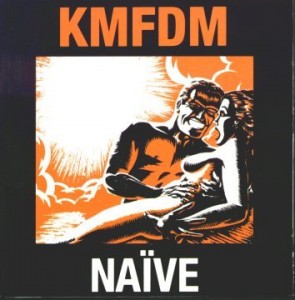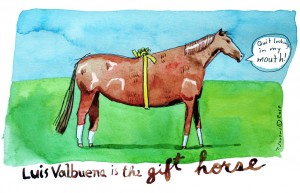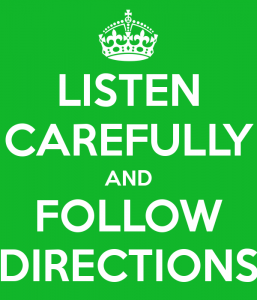 This is an on-going list of things that help make submitting an ebook for review flow smoothly. I’ll be adding points as they occur to me. It’s written to be specific to me and my blog, but in all likelihood would work for any number of bloggers. I’m trying to focus on specific tasks—the mechanics, so to speak—not the request itself. So I’m going to skip over the obvious be polite/professional, don’t SPAM or harass the reviewer, and other such basic etiquette. The Bookish Brunette and Lindsay Buroker do a good job of breaking that down, if that’s what you’re looking for. This is about the nuts and bolts of getting a book into my hand and a subsequent review on the net.
This is an on-going list of things that help make submitting an ebook for review flow smoothly. I’ll be adding points as they occur to me. It’s written to be specific to me and my blog, but in all likelihood would work for any number of bloggers. I’m trying to focus on specific tasks—the mechanics, so to speak—not the request itself. So I’m going to skip over the obvious be polite/professional, don’t SPAM or harass the reviewer, and other such basic etiquette. The Bookish Brunette and Lindsay Buroker do a good job of breaking that down, if that’s what you’re looking for. This is about the nuts and bolts of getting a book into my hand and a subsequent review on the net.
To start with,
READ THE POLICY!!
I know this sounds too simple for words and every blogger to ever write a tips and hints page starts with it, but people really don’t do it. In my case, I don’t just assume they don’t, I know they don’t. I set up two email addresses, one labelled 2lazy2readP&P@sadieforsythe.com and the other, further down the page, labelled ereview@sadieforsythe.com. A full 1/3 of the requests I get come to that first email address. Of those that manage to read far enough to spot the trap, many still don’t follow the directions (point #2), so I’m forced to wonder how well they read them. But it’s a start.
FOLLOW DIRECTIONS!!
I know, I sound like a first grade teacher. But my case makes an excellent example of why this is important. I strive to write an objective review. And, as much as I love meeting authors (and I really, really do), I find that too much conversation upfront impedes my ability to be impartial. This means I’ve set the whole system up so that I don’t actually ‘meet’ authors prior to reading their work. After—great, but not before.
 So, if you send me a ‘request’ that says ‘write me back if you would like a copy’ (which is me requesting your book, BTW, not you requesting a review) you’ve A) not followed direction and probably annoying me upfront, but more to the point, B) just collapsed my system. Don’t expect a response (not that you’d know that, since you probably didn’t read the policies or you would know better). And…
So, if you send me a ‘request’ that says ‘write me back if you would like a copy’ (which is me requesting your book, BTW, not you requesting a review) you’ve A) not followed direction and probably annoying me upfront, but more to the point, B) just collapsed my system. Don’t expect a response (not that you’d know that, since you probably didn’t read the policies or you would know better). And…
DO YOUR BASIC RESEARCH
Under no circumstances write me this email and expect me to comply.
Good afternoon,
I saw your contact on book tweeting service, can you send me more informations about book reviews? Where will you post your review? your blog, amazon, goodreads, Facebook?
this is my new book…
Thank you very much
Looking forward to hear from you
Best Regards
Not only because all of that information has already been provided in the  policies he/she obviously didn’t bother to read (yes, it came to the 2lazy2readP&P address), not to mention it’s listed on Book Tweeting, but also because I get several requests a day, have more books available to me than I can read, and therefore don’t need to work for more. I don’t need to make my case to you, just the opposite in fact. You make my job easier if you wish me to do you a favour, not the other way around. I don’t work for you. In fact, this gets me so riled up I wrote a whole rant on it. I know this really falls under the etiquette umbrella, that I wasn’t going to address, but it’s just so basic it needs repeating.
policies he/she obviously didn’t bother to read (yes, it came to the 2lazy2readP&P address), not to mention it’s listed on Book Tweeting, but also because I get several requests a day, have more books available to me than I can read, and therefore don’t need to work for more. I don’t need to make my case to you, just the opposite in fact. You make my job easier if you wish me to do you a favour, not the other way around. I don’t work for you. In fact, this gets me so riled up I wrote a whole rant on it. I know this really falls under the etiquette umbrella, that I wasn’t going to address, but it’s just so basic it needs repeating.
INCLUDE THE INFORMATION ASKED FOR
I know this really falls under follow directions, but it deserves it’s own point. I ask for a title, synopsis, page length and cover image. I love it when authors include genre classifications too, but I don’t specify it. I ask for this information for a reason. It helps me decide if I’m interested in your book or not, but it also helps me in another way. I use Goodreads to keep track of my TBR list. If you’re book is too new to be on Goodreads I often add it so that I can place it on the appropriate shelf. To do this I need some basic information. Yes, I can search Amazon for this information (this is now acceptable by GR policies) and I do. But having the basics to begin with helps me help you.
PAY ATTENTION TO THE FILE NAME
 This is something I never would have thought of if I wasn’t running an ebook review blog. Think it through. You send me an e-file. I then log it on my TBR list and plonk it onto my Kindle, to be read at some future date. When that time comes, I search my kindle for one of two things, the title or the author’s name. If the file is called something else, god forbid Unkown (of which I have several), I’ll never find it and, therefore never read it. So take that extra second to ensure that the file you attach to your email will show up when searched for.
This is something I never would have thought of if I wasn’t running an ebook review blog. Think it through. You send me an e-file. I then log it on my TBR list and plonk it onto my Kindle, to be read at some future date. When that time comes, I search my kindle for one of two things, the title or the author’s name. If the file is called something else, god forbid Unkown (of which I have several), I’ll never find it and, therefore never read it. So take that extra second to ensure that the file you attach to your email will show up when searched for.
IF YOU’RE INCLUDING LINKS, INCLUDE THE RIGHT ONES
If you send a Smashword’s coupon include the Smashwords link, not the Amazon one. I see this all of the time. People send me a coupon for one site and then link me to another. It’s usually Amazon. I think authors want me to know it’s available there. I promise, I’ll always look. But the logistics of the problem is that I still end up having to search for the book before I can actually use that handy-dandy coupon you’ve provided me. And as anyone who searches Smashwords regularly knows, their search engine is a bit of a pain. So just providing the link upfront instead of the higher profile Amazon one makes me happy. Honestly, I would prefer no link to a useless link. I’m just saying.
KEEP A LIST
![]() I have on more than one occasion, received the same book from the same author 2 or 3 times. I’m assuming this isn’t harassment, so much as poor bookkeeping. This wastes everyone’s time. You waste time posting a duplicate email and I waste time trying to log it only to discover I already have it.
I have on more than one occasion, received the same book from the same author 2 or 3 times. I’m assuming this isn’t harassment, so much as poor bookkeeping. This wastes everyone’s time. You waste time posting a duplicate email and I waste time trying to log it only to discover I already have it.
SERIES
If a book is 2nd, 3rd, etc in a series, I will need the previous books. This admittedly runs the risk of my reading/reviewing the first one and not continuing the series to the newest book. If that happens at least you got one review from me. But without the beginning of the series I’m almost guaranteed not to read the book you send me.
NUMBER OF REVIEWS
I know those first couple reviews are the hardest and most nerve wracking to find, but I’m unlikely to choose to read your book until you have them. The reason is that I’m going to be honest about my thoughts. That means if I disliked the book I’m going to say so. I’m not heartless though. I want to know going in that if I dislike the book and rate it poorly there are enough other reviews to balance everything out. There are a lot of dissenting views out there on the use of acquaintances for reviews. As long as they actually read the book before reviewing it I have no issue with it.
Like I said, this is an on-going list. Expect it to grow. But it’s a start. I’d be really interested in hearing from others. Have I forgotten something, missed something, mangled something? Let me know.







